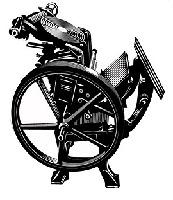- Posts: 2464
- Thank you received: 0
A Stupidity Tax
- BearMtnHIB
-

- Mountain Legend
-

That is BS about all corporate taxes being passed on, most times they are, but some corporations are price makers and some are price takers and find themselves unable to raise prices to pay increased taxes.
Not sure what you mean by this- any tax a corporation pays- must be included in the price of it's goods and services. It gets passed on to the consumer.
Please Log in or Create an account to join the conversation.
- LadyJazzer
-

- Mountain Legend
-

- Posts: 14880
- Thank you received: 27
Please Log in or Create an account to join the conversation.
- BearMtnHIB
-

- Mountain Legend
-

- Posts: 2464
- Thank you received: 0
No... It doesn't.... A percentage MAY, but it is not a 1-to-1 ratio.
You keep saying no- but do not explain it.
Please Log in or Create an account to join the conversation.
- PrintSmith
-

- Mountain Legend
-

- Posts: 5758
- Thank you received: 40
I agree with you LJ, it isn't a 1:1 ratio - taxes are marked up just as labor and raw materials are to generate profit for the company. If you raise the taxes you might force them to lower their profit margin on the taxes they pay, but the cost of their goods and services includes the tax bill that they know is coming. If it doesn't, the company won't be in business for very long because it won't be generating a high enough return to make its stock attractive to investors or it won't be able to meet its tax obligations along with its other overhead costs and the government will be shutting it down for failure to pay those taxes.
Please Log in or Create an account to join the conversation.
- LadyJazzer
-

- Mountain Legend
-

- Posts: 14880
- Thank you received: 27
BearMtnHIB wrote:
No... It doesn't.... A percentage MAY, but it is not a 1-to-1 ratio.
You keep saying no- but do not explain it.
And you keep regurgitating your right-wing-blog talking-points without doing any research to see if it's true...
Please Log in or Create an account to join the conversation.
- PrintSmith
-

- Mountain Legend
-

- Posts: 5758
- Thank you received: 40
Please Log in or Create an account to join the conversation.
- FredHayek
-

- Mountain Legend
-

- Posts: 30577
- Thank you received: 179
Thomas Sowell: There are no solutions, just trade-offs.
Please Log in or Create an account to join the conversation.
- BearMtnHIB
-

- Mountain Legend
-

- Posts: 2464
- Thank you received: 0
And if they lose sales from raising prices to pay for taxes, the Feds may actually get less tax receipts from this company.
Very true. Reagan proved that lower tax rates ment more money paid to government because of the increased economic activity generated.
Please Log in or Create an account to join the conversation.
- LadyJazzer
-

- Mountain Legend
-

- Posts: 14880
- Thank you received: 27
Imagine a $1 tax on every barrel of apples an apple farmer produces. If the product (apples) is price inelastic to the consumer (whereby if price rose, a small demand loss would be accounted for by the extra revenue), the farmer is able to pass the entire tax on to consumers of apples by raising the price by $1. In this example, consumers bear the entire burden of the tax; the tax incidence falls on consumers. On the other hand, if the apple farmer is unable to raise prices because the product is price elastic (if prices rose, more demand would be lost than extra revenue gained), the farmer has to bear the burden of the tax or face decreased revenues: the tax incidence falls on the farmer. If the apple farmer can raise prices by an amount less than $1, then consumers and the farmer are sharing the tax burden. When the tax incidence falls on the farmer, this burden will typically flow back to owners of the relevant factors of production, including agricultural land and employee wages.
Where the tax incidence falls depends (in the short run) on the price elasticity of demand and price elasticity of supply. Tax incidence falls mostly upon the group that responds least to price (the group that has the most inelastic price-quantity curve). If the demand curve is inelastic relative to the supply curve the tax will be disproportionately borne by the buyer rather than the seller. If the demand curve is elastic relative to the supply curve the tax will be born disproportionately by the seller. If PED = PES the tax burden is split equally between buyer and seller.
Tax incidence can be calculated using the pass-through fraction. The pass-through fraction for buyers is PES/(PES - PED). So if PED for apples is -0.4 and PES is 0.5 then the pass-through fraction to buyer would be calculated as follows: PES/PES - PED = 0.5/[0.5 - (-.0.4)] = 0.5/0.9 = 56%. 56% of any tax increase would be "paid" by the buyer; 44% would be "paid" by the seller. From the perspective of the seller, the formula is -PED/(PES - PED) = -(-0.4)/[0.5 -(-0.4)] = 0.4∕.9 = 44%
http://en.wikipedia.org/wiki/Tax_incidence
Please Log in or Create an account to join the conversation.
- LadyJazzer
-

- Mountain Legend
-

- Posts: 14880
- Thank you received: 27
BearMtnHIB wrote:
And if they lose sales from raising prices to pay for taxes, the Feds may actually get less tax receipts from this company.
Very true. Reagan proved that lower tax rates ment more money paid to government because of the increased economic activity generated.
Another Rightie "truisim"...that isn't true...
Tax Cuts Don't Boost Revenues
Virtually every economics Ph.D. who has worked in the Bush Administration acknowledges that the tax cuts of the past six years haven't paid for themselves.
If there's one thing that Republican politicians agree on, it's that slashing taxes brings the government more money. "You cut taxes, and the tax revenues increase," President Bush said in a speech last year. Keeping taxes low, Vice President Dick Cheney explained in a recent interview, "does produce more revenue for the Federal Government." Presidential candidate John McCain declared in March that "tax cuts ... as we all know, increase revenues." His rival Rudy Giuliani couldn't agree more. "I know that reducing taxes produces more revenues," he intones in a new TV ad.
If there's one thing that economists agree on, it's that these claims are false. We're not talking just ivory-tower lefties. Virtually every economics Ph.D. who has worked in a prominent role in the Bush Administration acknowledges that the tax cuts enacted during the past six years have not paid for themselves--and were never intended to. Harvard professor Greg Mankiw, chairman of Bush's Council of Economic Advisers from 2003 to 2005, even devotes a section of his best-selling economics textbook to debunking the claim that tax cuts increase revenues.
The yawning chasm between Republican rhetoric on taxes and even informed conservative opinion is maddening to those of wonkish bent. Pointing it out has become an opinion-column staple. But none of these screeds seem to have altered the political debate. So rather than write yet another, I decided to find out what Arthur Laffer thought.
http://www.time.com/time/magazine/artic ... 27,00.html
No, Gov. Pawlenty, Tax Cuts Don’t Pay for Themselves
By BRUCE BARTLETT, The Fiscal Times
June 17, 2011
Former Minnesota Gov. Tim Pawlenty, a candidate for the Republican presidential nomination, supports a balanced budget amendment to the Constitution but also wants an $8 trillion tax cut. He rationalizes this contradiction by asserting that his tax cut will not actually lose any revenue. As Pawlenty told Slate reporter Dave Weigel on June 13:
“When Ronald Reagan cut taxes in a significant way, revenues actually increased by almost 100 percent during his eight years as president. So this idea that significant, big tax cuts necessarily result in lower revenues – history does not [bear] that out.”
In point of fact, this assertion is completely untrue. Federal revenues were $599.3 billion in fiscal year 1981 and were $991.1 billion in fiscal year 1989. That’s an increase of just 65 percent. But of course a lot of that represented inflation. If 1981 revenues had only risen by the rate of inflation, they would have been $798 billion by 1989. Thus the real revenue increase was just 24 percent. However, the population also grew. Looking at real revenues per capita, we see that they rose from $3,470 in 1981 to $4,006 in 1989, an increase of just 15 percent. Finally, it is important to remember that Ronald Reagan raised taxes 11 times, increasing revenues by $133 billion per year as of 1988 – about a third of the nominal revenue increase during Reagan’s presidency.
The fact is that the only metric that really matters is revenues as a share of the gross domestic product. By this measure, total federal revenues fell from 19.6 percent of GDP in 1981 to 18.4 percent of GDP by 1989. This suggests that revenues were $66 billion lower in 1989 as a result of Reagan’s policies.
http://www.thefiscaltimes.com/Columns/2 ... elves.aspx
Meet The Press
Guest: Alan Greenspan
MR. GREGORY: All right. Well, Dr. Greenspan, it’s not often that you hear Democrats and liberals quoting you. But, in this case, they did when it come to–came to tax cuts because of an interview you gave recently with Judy Woodruff on Bloomberg television. Here was the question: “Tax cuts [that] are due to expire at the end of this year. Should they be extended? What should Congress do?” You said, “I should say they should follow the law and then let them lapse.” Question: “So to those interests who say but wait a minute, if you let these taxes go my taxes go up, it’s going to depress growth?” You said, “Yes, it probably will, but I think we have no choice in doing that, because we have to recognize there are no solutions which are optimum. These are choices between bad and worse.” You’re saying let them all go, let them all lapse?
MR. GREENSPAN: Look, I’m very much in favor of tax cuts, but not with borrowed money. And the problem that we’ve gotten into in recent years is spending programs with borrowed money, tax cuts with borrowed money, and at the end of the day, that proves disastrous. And my view is I don’t think we can play subtle policy here on it.
And on what has become an article of faith in many sectors of the conservative movement:
MR. GREGORY: You don’t agree with Republican leaders who say tax cuts pay for themselves?
MR. GREENSPAN: They do not.
Please Log in or Create an account to join the conversation.






